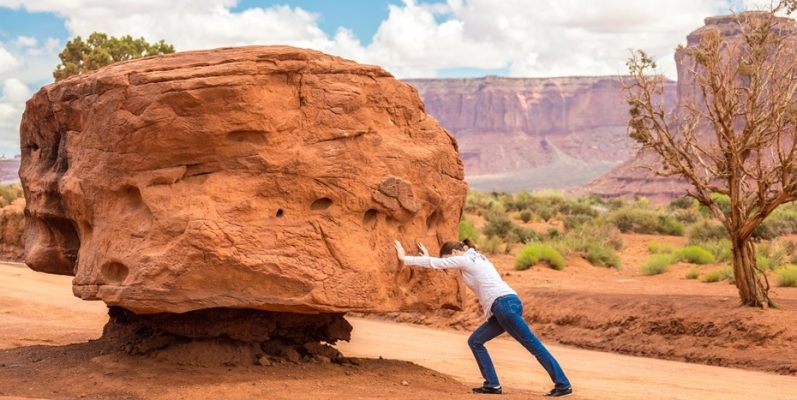
Karma or Kamma simply means “action,” “work,” or “deed.” When seen as a spiritual principle, the Indian concept of Karma implies that “… doing good, will bring good and doing bad, will bring bad.” In a spiritual sense, Karma is the moral law of cause and effect applied to the actions and intentions of human beings.
In fact, it means we gain or lose “points” or “merit” depending on our actions. Moreover, the idea of Karma is also connected to reincarnation theories, in which it’s thought that good deeds result in a happier rebirth and bad deeds in a not so happy one (or bad one, for that matter).

But before further examining the implications of Karma, I believe the first question we need to ask ourselves is, if we can really know what “the good” and what “the bad” is. Because sometimes we believe a certain action or act is good, but later on it seems like it was after all a bad thing to do. And sometimes it’s just exactly the other way around.
If the Karma principle were true, it would be of course of utmost importance to be able to distinguish between good and bad deeds.
However, the problem is — can we?
Well, I think we cannot, because we don’t know and cannot know all the results of our actions. Every act boasts an infinite chain of new causes and effects. It looks somewhat like the circular expansion of an increasing amount of waves created by throwing a stone in a lake. We most likely will not or cannot know what the “final” or even intermediate results are, or if they will turn out to be what we call good or bad.
However, we could claim that it doesn’t matter; that it’s about the single act or deed that counts — in connection with our intention. But this would imply that the Inquisitors from the Dark Ages, the by the Holy Church appointed witch-burners, did something good.

Sure … burning “witches” was without any doubt a respectful, even a “necessary and sacred” thing to do — at the time. In fact, the Inquisitors acted in “the name and will of God.” Their intention was “doing good,” but surely nowadays we don’t really agree, do we?
Returning to Karma. It means that the need of collecting merit by doing good is rather cruel and at best of no meaning at all, because we have no objective means or knowledge of how to comply and fulfill her ethical i.e. moral demands.
As it is, we happen to live in a world where good and bad are circumstantial and relative. Human ethics and morality are culturally and historically defined, and moreover, they change over time. And because of that, we are not and will not be able to decide between doing (the absolute) good or (the absolute) bad. We are in fact lost.
With regard to this it’s interesting that the Bible speaks of us “having eaten from the Tree of Knowledge of Good and Evil”. That might as well be true, but it still seems we just splash around in shallow waters, thinking to be excellent swimmers.















